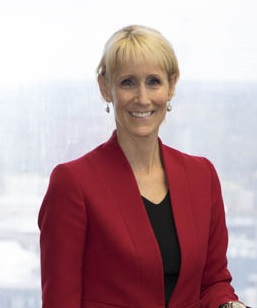State officials have dropped their plan for limiting the hours of support allowed for more than 180 Georgians with severe medical or behavioral health needs.
The Georgia Department of Community Health (DCH) had proposed the limits under a “waiver” proposal submitted to the federal government. The goal was to use those remaining funds to serve more people who are on waiting lists for services. Thousands of Georgians await such help.

The proposed cap on hours of assistance had alarmed families like the Gaffneys of Evans, a community in east Georgia.
Their son, Matt, 43 is nonverbal and suffers from multiple conditions: severe autism, bipolar disorder, and chronic gastrointestinal issues. After problems with his care in group homes, Sue and her husband, Phil, moved Matt to an independent home in Athens 20 years ago.
The Gaffneys cover the cost of Matt’s cottage plus other expenses. The state has paid for support workers to assist him 24 hours a day, so he’s not left alone. These aides help him eat, bathe and dress, and take him shopping, among other duties.
The Gaffney situation was profiled by Georgia Health News in February, in an article on the state’s waiver plan. “There’s no way our son can be left alone for even five minutes,’’ Sue Gaffney told GHN then.
She said this week that the family is grateful that state agencies rescinded the waiver application.
“We will always remain concerned about future actions by these agencies that can impact our Georgia citizens with disabilities, including our Matthew. For now, we are breathing easier this holiday season,” she said.
The provider group that works with Matt, Georgia Options, “has provided him a quality life. As a family, we are tremendously grateful,” she said.
DCH and the state Department of Behavioral Health and Developmental Disabilities (DBHDD), which administers the programs, said in a letter to providers this month that the proposed changes were dropped after discussion with community stakeholders, the waiver provider network, and families. The agency also cited the availability of federal stimulus funds related to the pandemic.
The commissioner of the DBHDD, Judy Fitzgerald, said in a statement that “our goal with the proposed changes was to serve as many people as possible. While we removed the proposed caps on skilled nursing and additional staffing hours from our waiver application, we are not abandoning our commitment to the 7,000 people who still wait to be served.”

The proposal on limiting service hours caused an outcry among the parents of individuals getting that help. They said their children were likely to be moved to group homes, where they wouldn’t get the services they need.
The state’s share of the care for the 188 people is about $9 million annually, officials said earlier this year.
The proposed waiver changes led to rare dissent on the DCH board.

Mark Trail, a former Georgia Medicaid director who was a DCH board member at the time the issue came up, asked agency officials tough questions about the move. He persuaded the board in January to table the issue until the federal Centers for Medicare and Medicaid Services (CMS) could weigh in on the changes.
But the next month, the board approved the proposal, with Trail voting against it.
Trail told GHN in a February interview that he didn’t get “clear answers’’ from state officials on the waiver changes. If the changes were to be approved by CMS, Trail said, “there will be some people who will be no longer to live independently, and will have to live in a shared living environment.’’
An alternative would be to add more funding for people on the waiting lists, Trail said.
It was never clear how many people could have potentially come off the waiting list as a result of the change, the Georgia Recorder’s Jill Nolin reported recently. State lawmakers added about $2 million to this year’s budget with the intention of funding about 100 slots. Advocates and families have been asking the state to boost funding for waiver slots.

